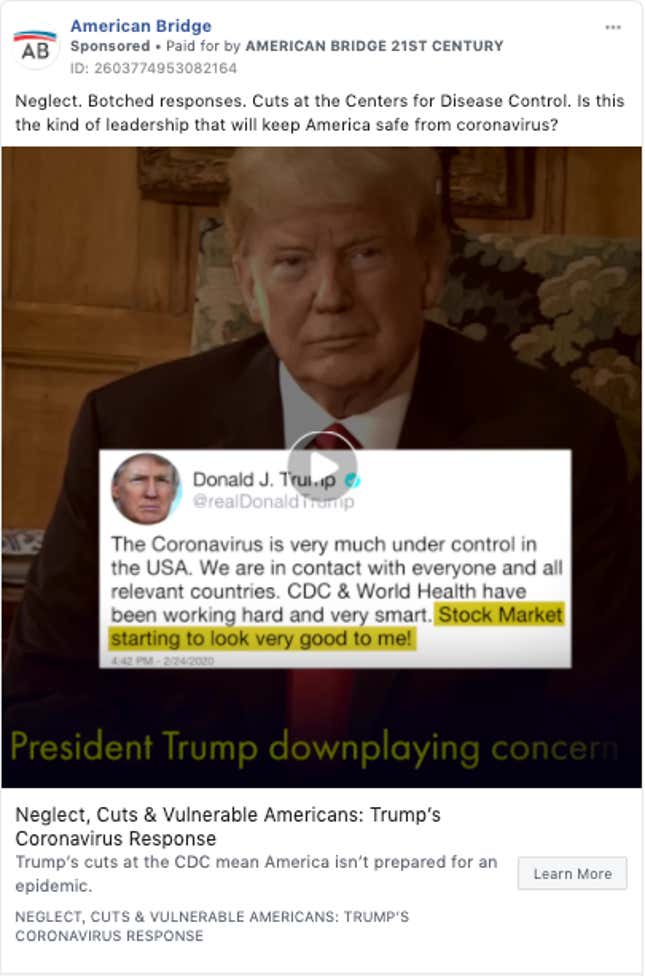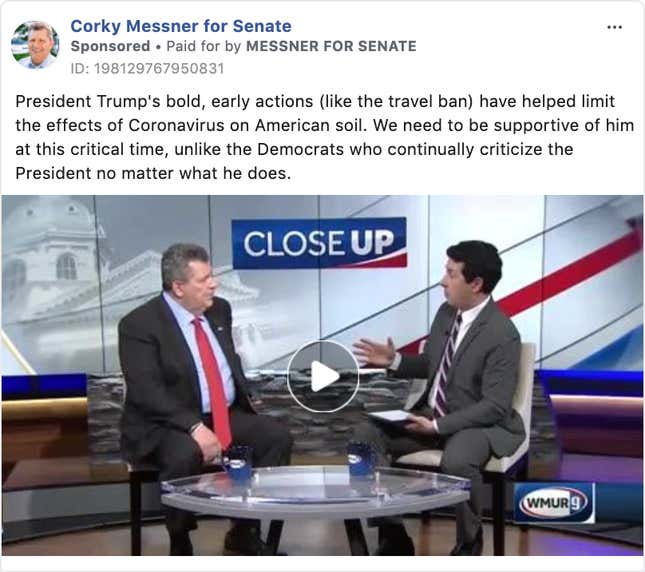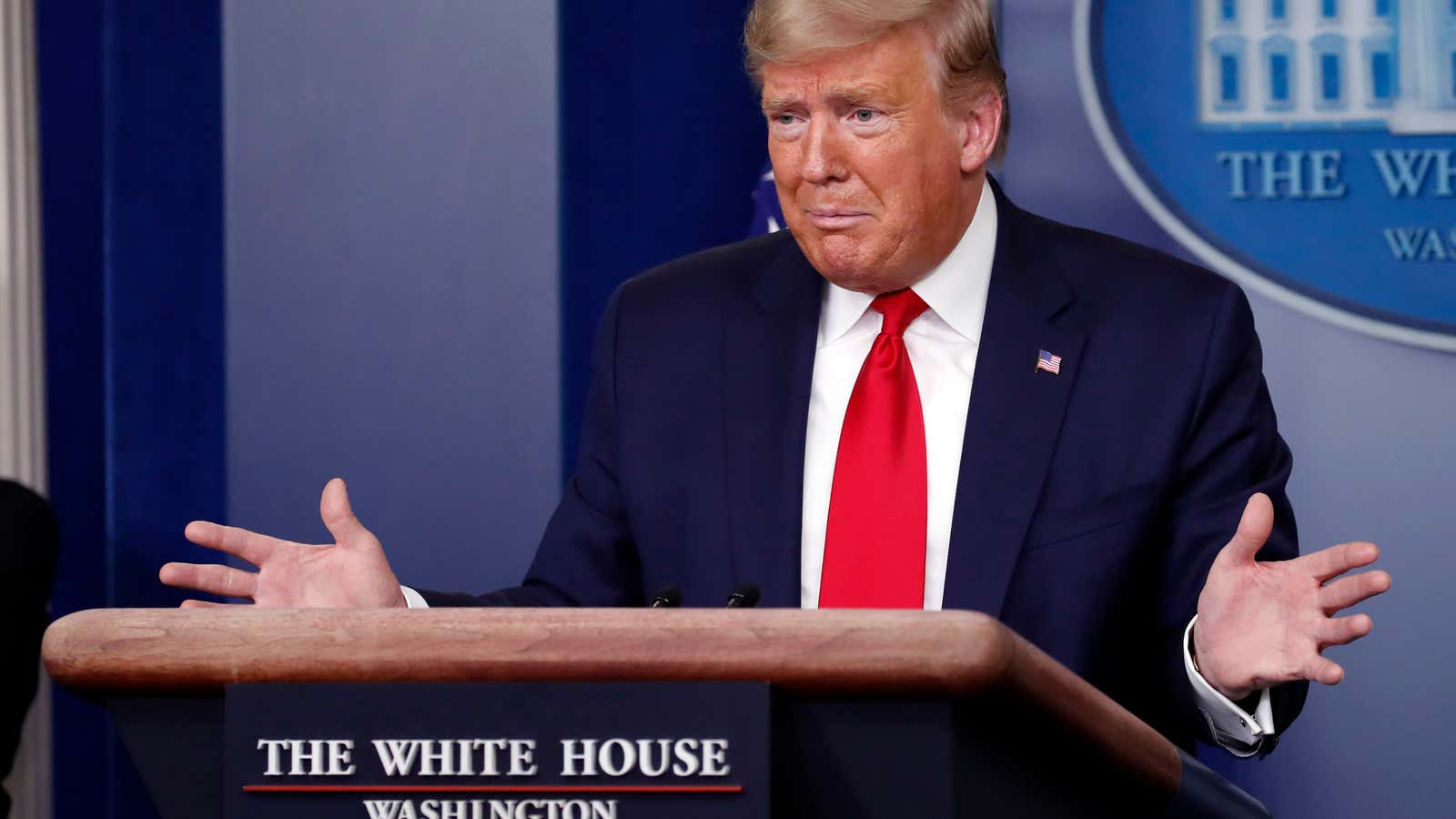The coronavirus pandemic in the United States is worsening by the day—and the 2020 presidential election is less than eight months away. Political groups are betting voters in swing states can be influenced by online ads about Donald Trump’s response to the pandemic—primarily criticism, from Democrats.
But some political strategists worry such ads will backfire.
“Neglect. Botched responses.” is how American Bridge, a pro-Democrat SuperPAC, characterized Trump’s response in a Feb. 26 Facebook ad.

That was the same day the US registered its first known case of Covid-19 being caused by “community transmission.”
Later, Four Is Enough, a Facebook page run by PACRONYM, an independent pro-Democrat group, wrote that “Trump is putting America at risk from coronavirus,” in a Facebook ad on which it later spent nearly $100,000, mostly in Michigan.

At that point, there were only about 175 coronavirus cases in the US.
Since then, the economy has largely shut down. That means you’re likely to see more political ads because of the pandemic: Demand for social media ads from other sections has dried up, so each political ad dollar buys more views.
As the number of infected—and dead—in the US has grown dramatically, the drizzle of ads criticizing Trump’s response has become a torrent. Joe Biden, the likely Democratic nominee, recently deployed a Twitter ad featuring clips of Trump making false but reassuring claims about the virus, and of him saying “I don’t take responsibility” for preparation failures.
Meanwhile Unite the Country, a pro-Biden SuperPAC, created a 30-second ad that says, “Crisis comes to every president. This one failed.”
Democratic politicians and political groups’ criticism has grown harsher. But some Democrats worry that this isn’t the time for negative ads.
“As much as I dislike Trump and think what a bad job he’s doing, there’s a danger now that attacking him can backfire on you if you get too far out there. I don’t think the public wants to hear criticism of Trump right now,” an advisor to Biden’s campaign told Politico.
A Democratic strategist who communicated with Quartz on condition of anonymity said that the Four Is Enough ad from PACRONYM doesn’t “strike me as particularly effective or helpful…We shouldn’t be making this a political food fight. We should be using resources (paid and unpaid) to tell people/voters how our candidates will do/would do to protect people’s health and livelihoods.”
Republicans, for their part, have praised Trump’s response in some campaign ads. Corky Messner, a candidate for the US Senate in New Hampshire, gave Trump credit in a March 9 ad for “help[ing] limit the effects of Coronavirus on American soil.”
Today the US has more confirmed cases of Covid-19 than any nation in the world.

“An ad like that is tone-deaf in the middle of this pandemic, and he’s going to end up getting hit for politicizing it,” the Democratic strategist said.
Despite the Trump administration’s missteps in response to the pandemic, the US president’s approval rating has risen somewhat.
Polling expert Nate Silver hypothesizes that Trump’s coronavirus bump won’t translate into votes, however.
That bump in approval may be inspiring pro-Democrat groups to remind voters of Trump’s most outrageous claims and boasts. But Americans are—for the first time in what seems like quite a while—distracted from politics, and it’s unclear whether the messages will be effective.
